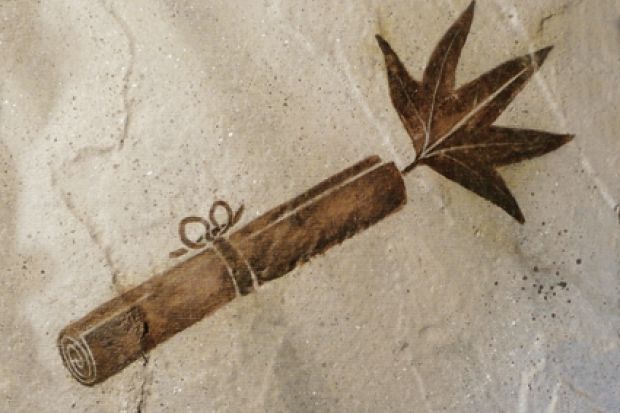At a tender and impressionable age my generation was systematically and ritually terrified by the state, by being shown Protect and Survive and other flickering public information films that told us we were all going to die. Back then, the world was a simpler, scarier place. We believed in the technology of Tomorrow's World. But we also knew that the same science was probably going to turn us to dust courtesy of Einstein's famous E = mc2 equation.
Now, of course, working one day a week, commuting by monorail and sporting skin-tight tinfoil suits, we know better. In spite of "Climategate" and the ostrich-like global-warming deniers, we know that the world is not going to be cooked in an instant like a ready meal in a microwave, but will be slowly simmered like the mythical frog being boiled in a laboratory, so gently that it does not detect the rise in temperature until it is too late.
In my youth we expected the 21st century to be the age of physics, but it turns out that the science of our time is biology and the most important of equations is not Einstein's, but the one representing photosynthesis:
6CO2 + 6H2O + Energy <-> C6H12O6 + 6O2
OK, I understand that not everyone appreciates the beauty of equations, so in words it is:
Carbon Dioxide + Water + Energy <-> Sugars + Oxygen
Or simpler still:
Atmospheric Carbon + Water + Energy <-> Fixed Usable Carbon + Atmospheric Oxygen
For fixed carbon, read: food, plant material, timber and other useful things.
But to make this simpler still, albeit even more controversial:
Lots of Animals = Atmospheric Carbon (rising global temperatures) <-> Lots of Plants = Fixed carbon (all is well with the world).
Photosynthesis is effectively reversible as respiration (the reaction by which animals burn plant material to gain the energy they need to function). Plants capture energy, lock up carbon and make useful things, whereas animals burn useful things to release energy and carbon dioxide.
Cutting the crap, what I am saying is that the world is doomed because we have an imbalance of animals and plants. But any ecologist will tell you that such equilibrium equations balance themselves out naturally. Unfortunately, this equation is currently balanced thus: all living animals (too many humans) are balanced against all living plants, plus many of the dead plants. That is, we can support a human population of this size only because it is supported by oil, coal and gas (the plants of former ages). The only way to balance this is more dead humans, or fewer humans. Neither of these options appears acceptable, so, QED, the Earth is screwed.
But perhaps there is a Tomorrow's World-style technological solution. If we cannot reduce the number of animals, perhaps we can increase the number of plants or their ability to fix carbon. Unfortunately, here again we come crashing into the same equation again in another form:
Zoologists <-> Botanists
Nobody wants to be a botanist. Plants are boring, they don't do anything, and animals are majestic, beautiful, cute and dynamic. In a world of free-market universities and student choice, we have just 10 universities offering degrees in plant science, each struggling with a handful of students, while there are about 40 universities offering zoology, all with students bursting out of the lecture rooms.
I am not arguing that zoologists are villainous Dr Evils determined to destroy the Earth, but that many of them are plant scientists whom we have failed to inspire. So can we save the world and recruit a new generation of botanists? Or do we hope that before they go extinct, the last few plant scientists are able to create a super-efficient biofuel crop?
Nope. As the number of plant science degrees in the UK looks likely to fall again, it's obviously easier to sit in this nice warm beaker with the zoologist and the frog and wonder if it really is getting hot in here.
Register to continue
Why register?
- Registration is free and only takes a moment
- Once registered, you can read 3 articles a month
- Sign up for our newsletter
Subscribe
Or subscribe for unlimited access to:
- Unlimited access to news, views, insights & reviews
- Digital editions
- Digital access to THE’s university and college rankings analysis
Already registered or a current subscriber? Login
